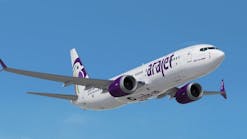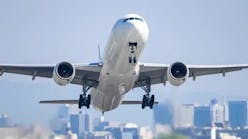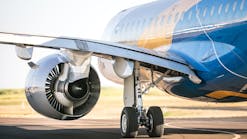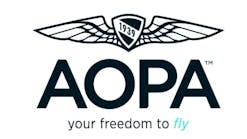Apr. 17--Former federal terrorism investigators say a piece of luggage hastily checked in at the Portland, Maine, airport by a World Trade Center hijacker on the morning of Sept. 11 provided the Rosetta stone enabling FBI agents to swiftly unravel the mystery of who carried out the suicide attacks and what motivated them.
A mix-up in Boston prevented the luggage from connecting with the plane that hijackers crashed into the north tower of the trade center. Seized by FBI agents at Boston's Logan Airport, investigators said, it contained Arab-language papers revealing the identities of all 19 hijackers involved in the four hijackings, as well as information on their plans, backgrounds and motives.
The luggage saga represents what the former federal authorities describe as an untold story of 9/11 - offering explanations for questions long unanswered about the investigation of the tragedy, such as how authorities were able to identify the hijackers so soon after the attacks.
The former federal investigators said information found in the bag was passed on to Justice Department lawyers, who prosecuted Zacarias Moussaoui on charges growing out of the suicide attacks. A Justice Department spokesman, Brian Roehrkasse, said: "Under the judge's order, we're not going to comment on anything relating to the case."
Mohamed Atta, a chief coordinator of the hijackings, and conspirator Abdulaziz Alomari spent the night before the attacks in room 232 of a Comfort Inn south of Portland. They checked out at 5:33 a.m. on Sept. 11. Portland Police Chief Michael Chitwood said they drove in a rented blue Nissan Altima - eventually seized by the FBI - to Portland International Jetport.
Records show the Altima was parked in an airport lot about 5:45, allowing Atta and Alomari only a few minutes to catch a 6 a.m. commuter flight to Boston's Logan Airport. Although they planned to hijack an American Airlines jet that would take off from Logan later that morning, investigators said they might have gone through Portland in the belief that airport security would be less stringent there.
Once the commuter flight landed at Logan, Atta and Alomari boarded American Airlines Flight 11 bound for Los Angeles - which they would crash into the trade center.
'A number of telling items'
A staff report to the 9/11 Commission later concluded: "The Portland detour almost prevented Atta and Alomari from making Flight 11 out of Boston. In fact, the luggage they checked in Portland failed to make it onto the plane. Seized after the Sept. 11 crashes, Atta and Alomari's luggage turned out to contain a number of telling items, including correspondence from the university Atta attended in Egypt; Alomari's international driver's license and passport; a videocassette for a Boeing 757 flight simulator; and [a] folding knife and pepper spray, presumably extra weapons the conspirators decided they didn't need."
The report did not say how many bags were checked in Portland, nor did it differentiate them by their contents. But three commission staff members who helped prepare the report said there were two pieces. Two staff members, John Raidt and R. William Johnstone, said it was clear both bags belonged to Atta. "He plopped both of them down on the luggage rack," Raidt said. "Alomari just stood by."
An affidavit filed by FBI agent James K. Lechner in federal district court in Portland reported that two bags checked by Atta were recovered at Logan Airport Sept. 11. They were never placed on Flight 11 before it departed from Boston, Lechner said, but there was no explanation of why they had not been loaded. Lechner described them as "a green Travel Gear bag" and "a black Travelpro bag."
A former FBI agent and a former federal prosecutor who helped direct the New England investigation of the Sept. 11 attacks told Newsday that one bag found in Boston contained far more than what the commission report cited, including the names of the hijackers, their assignments and their al-Qaida connections.
"It had all these Arab-language papers that amounted to the Rosetta stone of the investigation," former FBI agent Warren Flagg said. The former federal prosecutor, who declined to be identified publicly, supported Flagg's account.
Hijacker IDs
"How do you think the government was able to identify all 19 hijackers almost immediately after the attacks?" Flagg asked. "They were identified through those papers in the luggage. And that's how it was known so soon that al-Qaida was behind the hijackings.
The former prosecutor agreed that papers from the luggage helped identify suspects. "I can't speak on the record about that evidence," he said. "This evidence was gathered under grand jury subpoenas and I can't discuss grand jury matters."
The papers discovered in the hijackers' luggage were bolstered by other evidence gathered against the conspirators by the FBI, the former federal prosecutor said. "These guys left behind a paper trail," he said. "They had bank accounts. They rented cars. They had to show what they were doing in the United States. We investigated 9/11 from day one on the assumption that there might be a criminal prosecution."
But when it seemed clear that all 19 hijackers had been killed in the attacks, jurisdiction transferred from various federal prosecutors' offices around the country to Justice Department headquarters in Washington.
Flagg, an FBI agent for 22 years, worked on terrorism cases, among others. Now president of Flaggman Inc., a Manhattan-based investigative firm, he was retired by Sept. 11 but stayed in close touch with former FBI colleagues and prosecutors.
He said he first heard the account of the luggage's significance in the investigation on Sept. 28, 2001, after attending the funeral for John O'Neill, a former top FBI antiterrorism official who died helping others to safety Sept. 11 in his new job as director of security at the World Trade Center.
After the funeral, he said, he fell into conversation with a young FBI agent he had helped train in the New York office. The agent, working on the Sept. 11 investigation, told him about the luggage. The agent said the New England prosecutor helping direct the investigation - whom Flagg also knew - was familiar with the evidence. Flagg said he telephoned the prosecutor that same day and received confirmation of the agent's account.
"I was devastated because word had already leaked out of the hijackers' identities," Flagg said. "But I was also excited that the FBI had so much evidence so quickly."
The young FBI agent, who has since left the agency, works in private industry and is reportedly in Dubai. He could not be reached for comment.
News reports published in late September and early October 2001 described a piece of luggage apparently belonging to Atta that had been discovered at Logan Airport after the attacks.
That piece of luggage was said to contain Arab-language papers amounting to Atta's last will and testament, along with instructions to the other hijackers to prepare themselves physically and spiritually for death. The papers also admonished them: "Check all of your items - your bag, your clothes, knives, your will, your IDs, your passport, your papers. ... Make sure that nobody is following you." Similar papers were also found in the wreckage of another crashed airliner.
Flagg and the former prosecutor, however, said it was the second bag that identified all 19 hijackers.
"That was the one that became the Rosetta stone," Flagg said.
Tracking the hijackers
Luggage left at Portland airport enabled investigators to quickly identify the Sept. 11, 2001 hijackers, including leader Mohamed Atta and conspirator Abdulaziz Alomari.
1. Atta and Alomari check out of a Comfort Inn in Portland, Maine at 5:33 a.m. on Sept. 11, 2001.
2. 5:45 a.m.: They drive to Portland airport, arriving at about 5:45 a.m., for a scheduled flight to Boston.
3. They board a 6 a.m. commuter flight from Portland to Boston's Logan Airport.
4. Atta and Alomari board American Airlines Flight 11, for an 8 a.m. flight from Boston to Los Angeles.
5. Atta, Alomari and others hijack Flight 11 at 8:14 a.m.; they crash it into the World Trade Center's North Tower at 8:46 a.m.
6. Atta's luggage fails to make it onto Flight 11. The bag, left at Portland, contains evidence that helps investigators identify the hijackers.
About the reporter
Michael Dorman, an Opinion editor for Newsday who covered the civil rights movement for the paper in the 1960s, is also the author of 17 books, including "The Secret Service Story" and "The George Wallace Myth."




